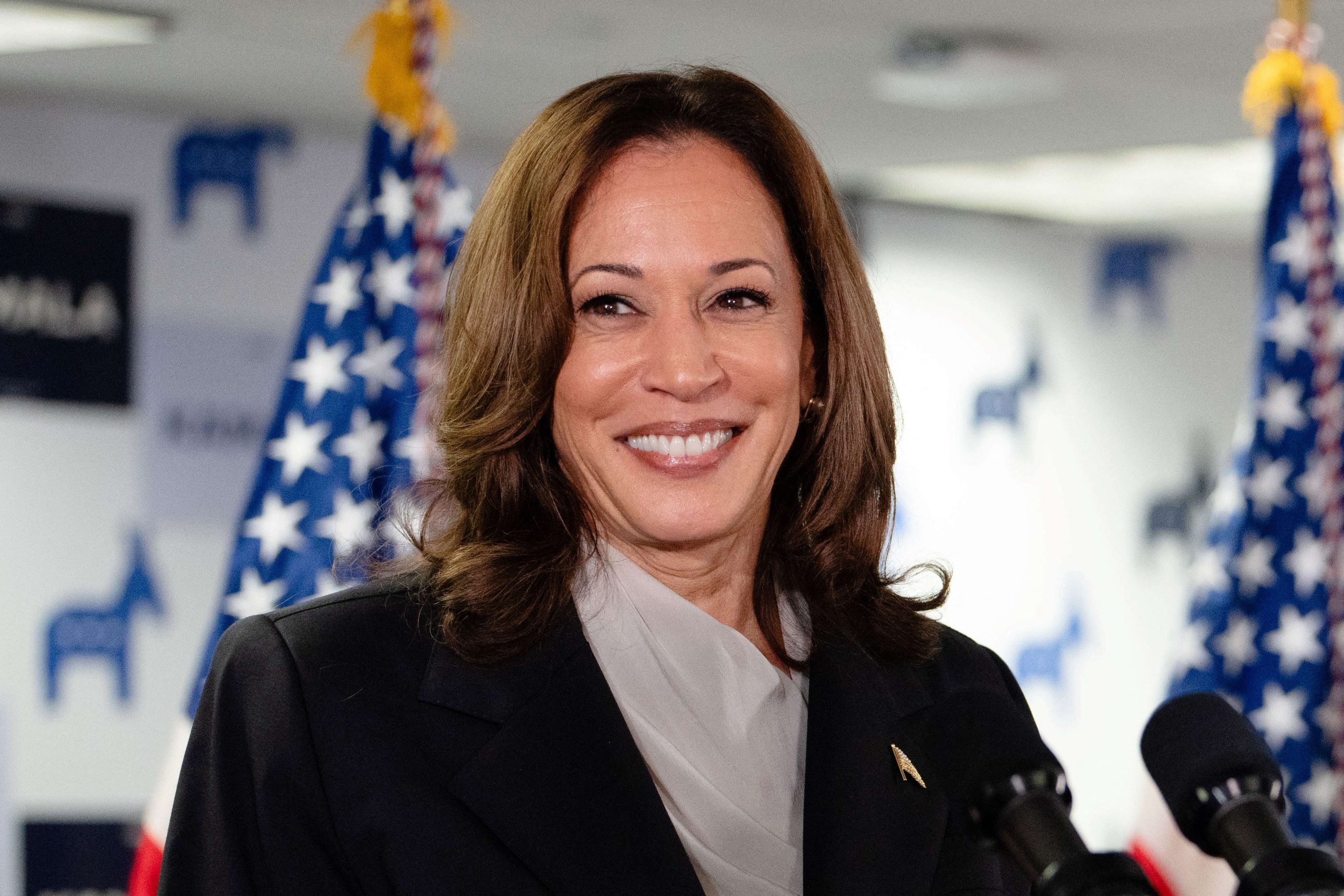Kamala Harris, the 49th Vice President of the United States, has a storied career marked by historic firsts, groundbreaking achievements, and a dedication to social justice. From her early years in California to her current role as Vice President, Harris’s journey reflects her commitment to civil rights, advocacy for the marginalized, and relentless pursuit of equality. This article explores Kamala Harris’s early life, career trajectory, policy initiatives, and the profound impact she has made as one of the most influential figures in modern American politics.
1. Early Life and Education
1.1 Family Background and Cultural Roots
Kamala Devi Harris was born on October 20, 1964, in Oakland, California, to immigrant parents – her mother, Shyamala Gopalan, was a biomedical scientist from India, and her father, Donald Harris, was an economist from Jamaica. Harris’s diverse background and multicultural roots played a significant role in shaping her identity and understanding of systemic issues that affect immigrant communities. Growing up, Harris was influenced by her mother’s deep sense of justice and commitment to activism, traits that would later define Harris’s own career.
1.2 Academic Journey and Legal Education
Harris attended Howard University, a prestigious Historically Black College and University (HBCU) in Washington, D.C., where she studied political science and economics. Howard’s culturally rich environment allowed her to connect with a legacy of Black intellectual and cultural leaders. After completing her undergraduate degree, Harris returned to California and attended the University of California, Hastings College of the Law, where she earned her Juris Doctorate. Her legal training set the foundation for her future roles in public service, including her work as a prosecutor.
2. Early Career: From Prosecutor to Attorney General
2.1 Early Work as a Deputy District Attorney
After passing the California bar, Harris began her career as a Deputy District Attorney in Alameda County, California. As a young prosecutor, she focused on cases related to gang violence, drug trafficking, and sexual abuse. Harris was known for her meticulous approach to cases and her commitment to victims’ rights, which garnered her respect among colleagues and law enforcement officials alike.
2.2 Ascension to San Francisco District Attorney
In 2003, Kamala Harris won the election to become the District Attorney of San Francisco, marking the beginning of her ascent in California politics. As the first woman and the first African American to hold this position, Harris introduced initiatives aimed at reforming the criminal justice system. One of her signature programs, Back on Track, was designed to reduce recidivism among low-level drug offenders by providing them with education and job training opportunities. Her progressive stance on criminal justice reform drew national attention and established her as a leader committed to overhauling outdated policies.
2.3 Becoming California’s Attorney General
In 2010, Harris achieved another milestone when she was elected as the Attorney General of California, the first woman and the first Black and South Asian person to hold the position. As Attorney General, she led efforts on critical issues such as consumer protection, environmental justice, and marriage equality. Harris was a staunch defender of California’s same-sex marriage laws, and she gained further prominence by taking on large financial institutions, winning a landmark $20 billion settlement for California homeowners impacted by the 2008 mortgage crisis. Her tenure solidified her reputation as a fierce advocate for justice and equality.
3. Senate Career: Legislative Focus and Achievements
3.1 Election to the U.S. Senate
In 2016, Kamala Harris was elected to the United States Senate, succeeding Barbara Boxer. Representing California, Harris quickly became known for her sharp questioning during Senate hearings, particularly in her role on the Senate Judiciary Committee. Her expertise and commitment to civil rights were evident as she advocated for progressive policies on immigration, healthcare, and criminal justice reform.
3.2 Key Legislative Initiatives and Advocacy
As a senator, Harris co-sponsored numerous bills aimed at social and economic reform. Some of her key legislative efforts included:
- Justice in Policing Act: Following the death of George Floyd in 2020, Harris co-authored this bill, which aimed to address police misconduct and racial bias.
- Maternal CARE Act: Harris introduced this bill to address racial disparities in maternal health, particularly focusing on Black maternal mortality rates.
- LIFT the Middle Class Act: This act proposed tax credits to provide financial relief to middle-income families.
Throughout her Senate career, Harris’s policy focus remained on issues affecting underrepresented communities, showcasing her dedication to equity and social justice.
4. The Road to the Vice Presidency
4.1 Presidential Run and Selection as Vice-Presidential Candidate
In January 2019, Harris launched her own campaign for the presidency. Her campaign highlighted themes of “For the People,” focusing on issues like criminal justice reform, healthcare for all, and economic equality. Although she eventually suspended her campaign in December 2019, Harris’s strong debate performances and dedication to core Democratic issues made her a prominent figure in the race.
In August 2020, Democratic presidential nominee Joe Biden selected Harris as his running mate. Her selection marked a historic moment, as Harris became the first Black, South Asian, and female vice-presidential nominee from a major political party. The Biden-Harris ticket symbolized a new era in American politics, focusing on unity, resilience, and progressivism.
4.2 Victory and Inauguration
On November 7, 2020, Harris and Biden were declared the winners of the 2020 election, and on January 20, 2021, Harris was inaugurated as Vice President of the United States. Her inauguration was a groundbreaking event, and her presence on the national stage inspired millions worldwide. Harris’s rise to the vice presidency reflects the changing face of American leadership and represents a step toward more inclusive representation at the highest levels of government.
5. Policy Priorities and Initiatives as Vice President
5.1 COVID-19 Response and Economic Recovery
One of Harris’s primary focuses as Vice President has been to address the COVID-19 pandemic and its economic impact. Working closely with President Biden, Harris played an instrumental role in promoting vaccination efforts, supporting small businesses, and ensuring that relief funds reached families in need. Harris’s involvement in these initiatives demonstrated her commitment to addressing both the immediate and long-term effects of the pandemic.
5.2 Immigration Reform and Border Issues
Harris was appointed by President Biden to oversee diplomatic efforts related to immigration, specifically to address the root causes of migration from Central America. As part of this role, Harris has engaged with leaders from countries like Mexico, Guatemala, and Honduras, focusing on addressing poverty, violence, and corruption in these regions. Her approach to immigration reform emphasizes humanitarian support, regional cooperation, and the need for systemic change to prevent future migration crises.
5.3 Climate Change and Environmental Justice
Environmental justice is a critical area in Harris’s policy portfolio. As an advocate for marginalized communities, she has emphasized the need for policies that address the disproportionate impact of climate change on low-income communities and communities of color. Harris has supported initiatives aimed at reducing carbon emissions, promoting clean energy, and investing in infrastructure to combat climate change. Her commitment to environmental justice underscores her broader vision of equity and sustainability for future generations.
6. Legacy and Future Impact
Kamala Harris’s career and achievements have already left an indelible mark on American politics. As the first woman, first Black American, and first South Asian American Vice President, Harris embodies a vision of inclusivity and progress. Her work as a prosecutor, senator, and now as Vice President reflects her lifelong commitment to justice, equality, and opportunity.
6.1 Inspiring Future Generations
Harris’s historic role in American politics has inspired millions, especially women and young people of color. Her story serves as a powerful reminder that leadership knows no bounds of race, gender, or background. Harris has often spoken about the importance of breaking down barriers for future generations, and her journey represents the resilience and courage needed to achieve that.
6.2 A New Chapter in American Politics
As Vice President, Kamala Harris continues to advocate for transformative policies and systemic change. Whether it’s tackling climate change, reforming criminal justice, or addressing racial inequality, her work reflects the need for a government that serves all its citizens. As she continues her journey in public service, Harris’s legacy is likely to inspire a more inclusive, compassionate, and equitable America.
Conclusion
Kamala Harris’s journey from Oakland to the White House is a testament to her resilience, dedication, and unwavering commitment to justice. As a trailblazer and role model, Harris has not only broken barriers but has paved the way for a new generation of leaders. Her impact on American politics will undoubtedly be felt for years to come, making her a pivotal figure in shaping the future of the United States.




